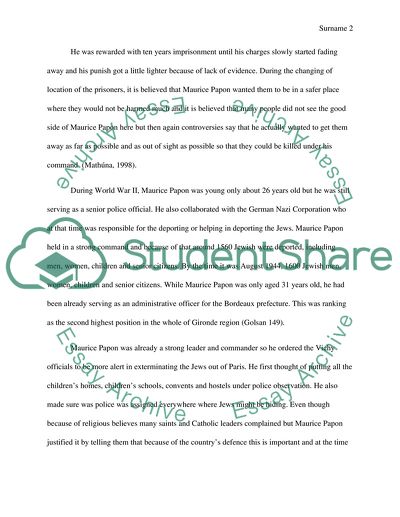Cite this document
(“What role did Maurice Papon play in the World War II in french Research Paper - 2”, n.d.)
Retrieved from https://studentshare.org/psychology/1608007-what-role-did-maurice-papon-play-in-the-world-war-ii-in-french-collective-memory
Retrieved from https://studentshare.org/psychology/1608007-what-role-did-maurice-papon-play-in-the-world-war-ii-in-french-collective-memory
(What Role Did Maurice Papon Play in the World War II in French Research Paper - 2)
https://studentshare.org/psychology/1608007-what-role-did-maurice-papon-play-in-the-world-war-ii-in-french-collective-memory.
https://studentshare.org/psychology/1608007-what-role-did-maurice-papon-play-in-the-world-war-ii-in-french-collective-memory.
“What Role Did Maurice Papon Play in the World War II in French Research Paper - 2”, n.d. https://studentshare.org/psychology/1608007-what-role-did-maurice-papon-play-in-the-world-war-ii-in-french-collective-memory.


